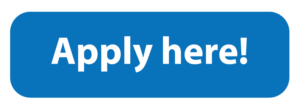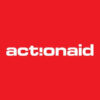Job description
To develop a Standard FGM/C Manual for facilitation of Community Dialogues & School’s
I. Summary
ActionAid International Somaliland (AAIS) is implementing school youth club and community dialogue on FGM/C; AAIS are seeking a consultant to develop a handbook for School Club teachers and Community facilitators to use whilst conducting community conversations on Female Genital Mutilation/Cutting (FGM/C). This handbook will support the delivery of key activities implemented by AAIS.
The consultant will be required to review existing materials and develop a detailed handbook that will both support teachers and community facilitators and help ensure that community conversations are delivered with a consistent approach and meeting minimum standards of facilitation.
II. Context
In Somaliland an estimated 99.8% of girls and women have undergone FGM/C, 86% of which have experienced the most severe form. The issue is hugely sensitive and taboo, not discussed in public, and is deeply entrenched in social norms around the position of girls and women in society, their sexuality, and dominant patriarchal and religious beliefs that are upheld by all sections of society. FGM/C urgently needs to be addressed as it is one of the most extreme manifestations of violence against women and girls.
To combat this AAIS plans to develop a standard manual of FGM/C topics for schools in Somaliland. This manual will facilitate the rollout of Girls School Clubs within the schools AA is working with under TGG-ALM program that will also be applicable for use in other schools and settings for future scaling. The Manual of FGM/C Topics is intended for teachers, facilitators, and champions, providing a comprehensive list of key topics relevant to the Somaliland context, along with essential definitions as a standard guide for school youth clubs and community dialogues. AAIS aims to disseminate this tool on an open platform, allowing various stakeholders involved in the fight against FGM/C in Somaliland to access and utilize it. This initiative is expected to support the differentiation between harm reduction and zero-tolerance approaches to ending FGM/C, clarifying the various forms of violence associated with FGM/C.
III. Consultancy Purpose/Objectives
The handbook will equip School Club Teachers and Community Facilitators with the information, skills and confidence they need to facilitate Conversations on FGM/C and issues such as gender norms, leading participants through a participatory process of reflection and action. Ultimately the aim is to deepen the community’s understanding of FGM/C that leads to decision making and taking actions in the local context. The dialogues will serve as part of an interactive process, which brings people together and engages communities to discuss and explore the underlying causes of FGM/C. The dialogues will serve as part of an interactive process, which brings people together and engages communities to discuss and explore the underlying causes of FGM/C and explore collective action to end it.
Specifically, the handbook will provide Club teachers and Community Facilitators with:
- Knowledge of human rights and specifically Women Rights and how this can be applied within conversations.
- Knowledge and understanding of FGM/C and its prevalence in Somaliland, especially policies, legal basis, and challenges. Reference should be made to the different types of cuts, and clarity on what constitutes FGM/C.
- Human rights-based approach and participatory process of reflection and action, and how to apply this approach within conversations
- A clear framework and guidance on how to implement the Standard Manual Conversation model, including:
- Objectives and outcomes of the clubs and community conversations
- Roles and responsibilities of club teachers and community conversation facilitator within each step of a community conversation/dialogue.
- Step by step process, guidance and tools for (including but not limited to):
- Stimulating dialogues and create a forum for youth club members and community members to think together to identify the socio-cultural factors affecting the health of girls and women.
- Open discussions and dialogue on socio-cultural issues affecting maternal and child health conditions in target population.
- opportunity for collective intergenerational and mutual learning at community level leading to building consensus on collective community actions
- Knowledge and tools on how to monitor and evaluate community conversations, record and share this information.
IV. Target beneficiaries
This activity targets Government, INGOs, NGOs, CSOs and community members (women coalitions, traditional and religious leaders, youth forums, girls, boys, mothers and fathers, police officers, community committees) to develop a stander manual that can be used for the discussions on FGM/C.
V. Methodology
The consultant is expected to develop a standard handbook on FGM/C through participatory process and engagement of relevant stakeholders. AAIS plans to disseminate the tool in an open platform so that various stakeholders operating in the end FGM/C movement in Somaliland can draw upon it. This will be led by the consultant who will make presentations on the manual and present it to the stakeholders during a one-day workshop and get their feedback incorporated in the manual.
VI. Outputs
- Learning Guide/ Handbook on conversations and dialogues on FGM/C (complete with tools for the club teachers and community facilitators to use during the engagements, and to monitor the community conversations)
- It is expected that the consultant will produce a draft handbook for comments and feedback from AAIS and then take these comments on board to produce the final version of the handbook.
- The final English and Somali Versions of the handbook should be well presented and ready for printing.
- A one-day workshop for stakeholders involved in the movement to end FGM/C will be convened. The purpose of this workshop is to present the handbook and its methodologies, tools, and processes. Participants will have the opportunity to share their views and provide feedback, assessing the handbook’s applicability and relevance in conversations on FGM/C.
VII. Specific duties and responsibilities of the consultant
- List all necessary task materials and equipment to be made available by the client for the effective delivery of the standard FGM/C handbook development.
- Complete a review of the reference materials to inform the development of the handbook
- Consult with AAIS on the key content of the manual and workshop session.
- Develop standard handbook conversations on FGM/C (First draft and final copy after feedback)
- Develop the workshop design/plan and presentations.
- Organize and facilitate the workshop following participatory methodology for one day.
- Compile and submit a comprehensive workshop report.
- Write and submit necessary documents (task report, workshop manual and evaluation instruments and other necessary task materials (e.g. photos, audio materials, etc.)
VIII. Reference materials
It is expected that the consultant will refer to the following documents to inform the development of the handbook:
- Existing materials and handbooks on FGM/C community conversations
- ActionAid WR / HRBA reference materials
- Community conversation enhancement manual by UNDP
- Any other relevant documents.
Skills and qualifications
I. Consultant Requirements & Qualifications
The consultant should have:
- A minimum of first degree relevant to the area of the task (social science and/or human rights)
- A minimum of 5 years’ experience working in women’s rights and gender equality, with expertise on violence against women and girls, harmful traditional practices, or FGM/C
- Relevant and proven experience in developing handbooks or manuals related to women’s rights and harmful traditional practices, like FGM/C.
- Knowledge of Human Rights Based Approach and reflect action methodology
- Experience with facilitating workshops for different stakeholders is desirable
- History of involvement in Community conversation training and established track record of conducting high quality training
- Experience both for the practical and theoretical procedures of training
- Effective communication skills.
How to apply
Interested candidates are invited to submit their applications not later than January 10th, 2025, via admin.somaliland@actionaid.org in order for an application to be considered valid, we only accept electronic submissions. Only shortlisted candidates will be contacted.
More Information
- Qualification Degree
- Experience 5 - 6 Years


